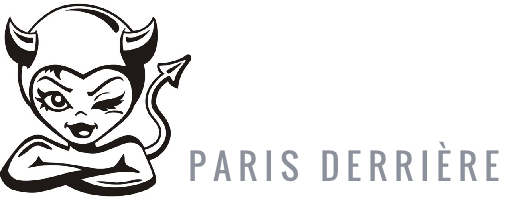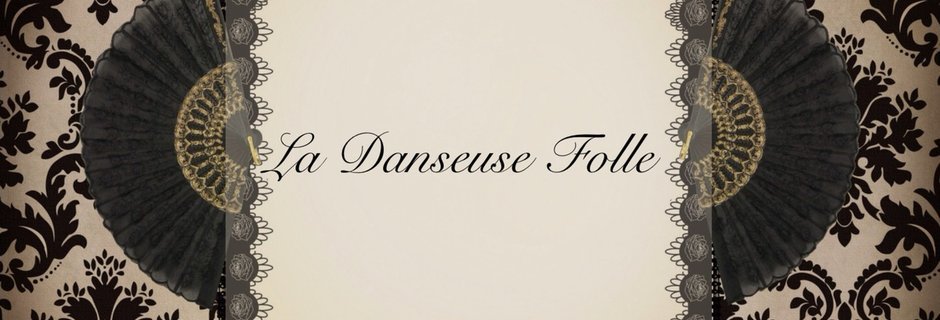Canaux
34739 éléments (3198 non lus) dans 75 canaux
 Radio/sons
(113 non lus)
Radio/sons
(113 non lus)
-
Gorges Profondes (3 non lus) [xml|www]
-
 Un podcast à soi
(46 non lus) [xml|www]
Un podcast à soi
(46 non lus) [xml|www] -
 Les couilles sur la table
(64 non lus) [xml|www]
Les couilles sur la table
(64 non lus) [xml|www] -
 Histoires de Darons
[xml|www]
Histoires de Darons
[xml|www]
 Sexo anecdotique
(669 non lus)
Sexo anecdotique
(669 non lus)
-
Cosmopolitan.fr : SEXO (341 non lus) [xml|www]
-
CareVox : Partageons l'info santé - Psycho & Sexo [xml|www]
-
 sexologie-magazine.com
(167 non lus) [xml|www]
sexologie-magazine.com
(167 non lus) [xml|www] -
 Les Salopes Ordinaires
(9 non lus) [xml|www]
Les Salopes Ordinaires
(9 non lus) [xml|www] -
 Sexe – madmoiZelle.com
(122 non lus) [xml|www]
Sexe – madmoiZelle.com
(122 non lus) [xml|www] -
 Le Vagin Connaisseur
[xml|www]
Le Vagin Connaisseur
[xml|www] -
 SEX-ED +
(30 non lus) [xml|www]
SEX-ED +
(30 non lus) [xml|www]
 Actu et info sexe
(635 non lus)
Actu et info sexe
(635 non lus)
-
 Les 400 culs
[xml|www]
Les 400 culs
[xml|www] -
Rue89 : Rue69 [xml|www]
-
 Le jardinet du Docteur Uthe
(17 non lus) [xml|www]
Le jardinet du Docteur Uthe
(17 non lus) [xml|www] -
Le Tag Parfait (6 non lus) [xml|www]
-
 Caphi : TRANSIDENTITE
[xml|www]
Caphi : TRANSIDENTITE
[xml|www] -
Rue Bricabrac [xml|www]
-
violet blue ® :: open source sex [xml|www]
-
 Les 400 culs
[xml|www]
Les 400 culs
[xml|www] -
Blog féministe. Luttons contre le sexisme. Féminisme, anti-sexisme. [xml|www]
-
 Le ticket de Metro d'Ovidie
[xml|www]
Le ticket de Metro d'Ovidie
[xml|www] -
Sexpress [xml|www]
-
 NXPL
(120 non lus) [xml|www]
NXPL
(120 non lus) [xml|www] -
 Paris Derriere
[xml|www]
Paris Derriere
[xml|www] -
 Liens du Docteur Uthe
[xml|www]
Liens du Docteur Uthe
[xml|www] -
 Desculottees
(162 non lus) [xml|www]
Desculottees
(162 non lus) [xml|www] -
 Festival SBX DTC
(1 non lus) [xml|www]
Festival SBX DTC
(1 non lus) [xml|www] -
 Pop Your Cherry*
[xml|www]
Pop Your Cherry*
[xml|www] -
 La Danseuse Folle
[xml]
La Danseuse Folle
[xml] -
UnionSexo – Union (329 non lus) [xml|www]
 Ecrits / bds / Edition
(109 non lus)
Ecrits / bds / Edition
(109 non lus)
-
 Erogene
[xml|www]
Erogene
[xml|www] -
 DARKNESS FANZINE
(87 non lus) [xml]
DARKNESS FANZINE
(87 non lus) [xml] -
La Taniere de MisterDom (14 non lus) [xml|www]
-
 Osez (20 histoires de...)
[xml|www]
Osez (20 histoires de...)
[xml|www] -
 Mona Agent X
[xml|www]
Mona Agent X
[xml|www] -
 Chocolat Cannelle : Litterature Erotique
[xml|www]
Chocolat Cannelle : Litterature Erotique
[xml|www] -
 La Musardine - Le blog
[xml|www]
La Musardine - Le blog
[xml|www] -
Lubricités (1 non lus) [xml|www]
-
Impudique Magazine [xml|www]
-
 desyeuxdebitch
[xml|www]
desyeuxdebitch
[xml|www] -
 Stuc Regences.
(7 non lus) [xml|www]
Stuc Regences.
(7 non lus) [xml|www] -
Julie Derussy [xml|www]
-
 @mateurdart
[xml|www]
@mateurdart
[xml|www] -
 Irma B. – URBANIA
[xml|www]
Irma B. – URBANIA
[xml|www]
 BDSM/cuir/latex/
(29 non lus)
BDSM/cuir/latex/
(29 non lus)
-
 TendanSMag : Fetish webzine
[xml|www]
TendanSMag : Fetish webzine
[xml|www] -
Nuit Elastique (25 non lus) [xml|www]
-
 cercle O
(4 non lus) [xml|www]
cercle O
(4 non lus) [xml|www] -
Journal d'une petgirl [xml|www]
-
 Sentiment Moderne magazine
[xml|www]
Sentiment Moderne magazine
[xml|www]
 feminisme
(791 non lus)
feminisme
(791 non lus)
-
 Féministes radicales
[xml|www]
Féministes radicales
[xml|www] -
 Sexisme et Sciences humaines - Feminisme
[xml|www]
Sexisme et Sciences humaines - Feminisme
[xml|www] -
 Zéromacho
[xml|www]
Zéromacho
[xml|www] -
 Crêpe Georgette
(10 non lus) [xml|www]
Crêpe Georgette
(10 non lus) [xml|www] -
 Les Martiennes (wp.com https)
(10 non lus) [xml|www]
Les Martiennes (wp.com https)
(10 non lus) [xml|www] -
 Genre!
[xml|www]
Genre!
[xml|www] -
 Sisyphe.org
(3 non lus) [xml|www]
Sisyphe.org
(3 non lus) [xml|www] -
 Mouvement du Nid
[xml|www]
Mouvement du Nid
[xml|www] -
 A dire d'elles
(1 non lus) [xml|www]
A dire d'elles
(1 non lus) [xml|www] -
 Blog du GAMS
(15 non lus) [xml|www]
Blog du GAMS
(15 non lus) [xml|www] -
 Révolution Féministe
(22 non lus) [xml|www]
Révolution Féministe
(22 non lus) [xml|www] -
 Poulet Rotique
(5 non lus) [xml|www]
Poulet Rotique
(5 non lus) [xml|www] -
 Les Nouvelles NEWS
(370 non lus) [xml|www]
Les Nouvelles NEWS
(370 non lus) [xml|www] -
 50 – 50 Magazine
(355 non lus) [xml|www]
50 – 50 Magazine
(355 non lus) [xml|www]
 Libertinage
(19 non lus)
Libertinage
(19 non lus)
-
 LIBERTINE ? ET ALORS !
(8 non lus) [xml|www]
LIBERTINE ? ET ALORS !
(8 non lus) [xml|www] -
 les fesses de la cremiere
[xml|www]
les fesses de la cremiere
[xml|www] -
 Le Voyage Initiatique de Mam'zelle N
[xml|www]
Le Voyage Initiatique de Mam'zelle N
[xml|www] -
WAID AND SEE (1 non lus) [xml|www]
-
 Le Blog de Lady Erell
(10 non lus) [xml|www]
Le Blog de Lady Erell
(10 non lus) [xml|www]
 Info LGBTI
(833 non lus)
Info LGBTI
(833 non lus)
-
Yagg societe (144 non lus) [xml|www]
-
360° (123 non lus) [xml|www]
-
 Barbi(e)turix !!» ACTUALITES | Barbi(e)turix !!
(19 non lus) [xml|www]
Barbi(e)turix !!» ACTUALITES | Barbi(e)turix !!
(19 non lus) [xml|www] -
 ASSOCIATION STOP HOMOPHOBIE | RELAIS - INFOS
(423 non lus) [xml|www]
ASSOCIATION STOP HOMOPHOBIE | RELAIS - INFOS
(423 non lus) [xml|www] -
 Heteroclite
[xml|www]
Heteroclite
[xml|www] -
 High fem & Radfem
(6 non lus) [xml|www]
High fem & Radfem
(6 non lus) [xml|www] -
 Manifesto XXI
(118 non lus) [xml|www]
Manifesto XXI
(118 non lus) [xml|www]
-

 23:34
23:34 Décompte : Quand Boutin conteste les chiffres de la “marche républicaine”
» ASSOCIATION STOP HOMOPHOBIE | RELAIS - INFOS"Esprits grincheux" : 1,5 million de participants à la "Marche républicaine" ?! Christine Boutin refuse d'y croire !
-

 22:06
22:06 Imagine a version where the perpetrators were feminists, responding to pornographers
» Féministes radicalesREBLOGGED from Trouble and StrifeImagine that three women, wearing face-masks and armed with automatic weapons, went into the office of a leading pornographic magazine and shot several pornographers dead. Imagine that as they left they were heard to shout ‘men are scum’ and ‘we have avenged the women’. Imagine, in other words, a version of the Charlie Hebdo massacre in Paris where the perpetrators were feminists, and the offence to which they were responding was not the circulation of cartoons depicting the Prophet, but the circulation of images depicting the violent sexual degradation of women.
I do not believe I know a single feminist who would defend such an action. Even committed feminist anti-porn campaigners would deny that violence and killing are legitimate responses to the harm they believe pornography does. ‘Not in my name’, they would say. ‘Feminism is a non-violent political movement, and we condemn these brutal killings’.
But in other ways the feminist response would be different from the response to the Charlie Hebdo shootings. I don’t think we’d be carrying placards saying ‘I am Hustler’, or tweeting messages of support adorned with that hashtag. I don’t think we’d be exalting the freedom of men to make and use pornography as one of the defining features of a civilized society. I don’t think we’d be sharing pornographic images as a tribute to the victims.
I also don’t think we’d be saying, as some people have said about the cartoons that provoked the attack in Paris, ‘they’re only pictures, FFS’. I don’t think we’d be saying that even if the attack had targeted men whose products were not photographs of actual women, but—for instance—the pornographic drawings of girls which are a subgenre of Japanese manga (and are explicit enough to be illegal under the UK’s child pornography laws). Most feminists who oppose pornography do not think its harm is limited to the women actually depicted in it. We think it harms all women, because it influences the way they are looked at, thought about and treated by those who use it.
I am using this imaginary scenario to explain why I have found it difficult to frame a response to the events in Paris. My view on the killings themselves is unambiguous: there is no possible justification for what the killers did. I am also absolutely clear about my opposition to Islamism and other forms of modern religious fundamentalism. These are right-wing political movements and the submission of women to patriarchal authority is a central tenet of all of them. On these points I’m not conflicted, nor at odds with the prevailing view. But my difficulty begins when the conversation turns to the more general issue of freedom of expression.
Before this week I’d never looked at what Charlie Hebdo published, but when I saw the cartoons that were reproduced in the wake of the killings, I found them even more offensive than I’d imagined they would be. I know they belong to a French tradition of overtly and deliberately crude caricature, but even so I was struck, looking at recent covers depicting Muslims, by how much they reminded me of some of the iconography of the Nazis. Take away the turbans, and these malevolent hook-nosed figures could have come from the pages of an anti-semitic pamphlet in 1930s Germany.
Lire la suite :
http://www.troubleandstrife.org/2015/01/a-rock-and-a-hard-place/
The post Imagine a version where the perpetrators were feminists, responding to pornographers appeared first on Féministes radicales.
-

11:01
Le Vietnam entrouvre la porte aux mariages gay
» 360°C’est une première en Asie du Sud-Est, et elle nous arrive d’un pays communiste! L’Assemblée nationale vietnamienne a aboli la loi qui interdisait le mariage entre personnes de même sexe. Les amendes en cas d’infraction avaient déjà été abolies en 2013. La réforme est entrée en vigueur le Jour de l’An. Les unions sont désormais légales, bien que les parlementaires se sont gardés d’accorder toute garantie étatique aux mariages homosexuels. «Le message, pour l’instant, c’est que ces unions ne nuisent pas à la société», explique le juriste Luong The Huy, de l’Institut pour l’étude de la société, de l’économie et de l’environnement, une ONG vietnamienne qui défend les droits des minorités, à l’agence Bloomberg (via). L’opinion vietnamienne reste majoritairement hostile au mariage gay.
Le tourisme en ligne de mire
«Les gays au Vietnam vont bénéficier de davantage d’ouverture, sans que cela ne provoque de tempête, comme dans d’autre pays du Sud-Est asiatique. Cela va avoir un effet positif sur le tourisme», prédit John Goss, d’Utopia Asia, un site gay basé à Bangkok. Le Vietnam reçoit près de 8 millions de visiteurs par an, un chiffre en constante augmentation.Seul autre pays de la région relativement ouvert aux questions LGBT, la Thaïlande a vu ses projets de loi sur les unions homosexuelles gelés par le retour au pouvoir des militaires, en mai dernier. Les autres Etats, y compris la prospère Singapour, ont des lois très conservatrices, voire répressives à l’encontre des gays. Le Brunei a récemment durci considérablement son arsenal pénal, prévoyant des châtiments corporels pour homosexualité.
-

 11:00
11:00 Télévision. « Looking » sur HBO : « Il existe un réel besoin de représenter la communauté LGBT »
» ASSOCIATION STOP HOMOPHOBIE | RELAIS - INFOSLooking fait son retour sur HBO ce dimanche 11 janvier 2015, puis sur OCS City le lundi 11 janvier. -

 5:52
5:52 Homosexualité : Comment les évangéliques abordent-ils la question ?
» ASSOCIATION STOP HOMOPHOBIE | RELAIS - INFOSInstigateurs des lois homophobes en Ouganda et adeptes des prêches caricaturaux, certains évangéliques semblent voir le démon dans chaque homosexuel.